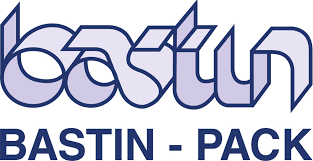
BASTIN has been producing printed packaging for food, pharmaceuticals and cosmetics since 1929. Bastin also achieves high marks in non-food with its industrial packaging.
Our flexo printed (up to 8 colours) consumer and industrial packaging is printed on rolls in all types of substrates. We propose the most suitable interlayer printed laminates according to your needs and requirements.
We also tailor-make printed block bottom bags and pouches (vacuum & stand-up pouches) for you.
Our BRC-IoP certificate guarantees high hygiene standards for your packaging materials.
Together we realize your tailor-made, flexible packaging with the desired barrier properties.
We are leaders in:
high quality flexo printing
the production and interlayer printing of various laminates with desired barrier properties (water vapour, oxygen, aroma, …)
the making of block bottom bags and pouches (vacuum & stand-up pouches)
BRC-IoP, as well as ISO 9001-2008, certified according to the latest standards by IsaCert, NL.
small and medium runs.
WITH THE LATEST TECHNOLOGY
MACHINERY
Multiple flexo printing presses up to 8 colors as well as recto verso, on all types of materials.
Lamination to 4-layer high barrier complexes .
WE GUIDE YOU IN THE WORLD OF
SUSTAINABLE PACKAGING
To guide you through the world’s hottest topic “sustainable packaging”, I consulted Karien Van de Weghe – account manager at Bastin-Pack. Ten years ago she introduced biobased packaging for coffee at Bastin. The interest of our customers was low at the time. But this has changed since the European regulation that states that by the end of 2030 all plastic packaging must be reusable or recyclable. Luckily Bastin was ready! Karien follows developments closely, keeping in close contact with the producers. This article clarifies the most common questions regarding processability on machine, shelf life, price and recyclability.
“Bio-films handle just as well on machine as conventional films.”
There are differences in coefficient of friction, tensile strength, sealing temperature etc… This of course influences the speed at which the films are processed on the machine. However, bio-films can be used just as well on horizontal and vertical flowpack machines.
“My packaging made from bio-film disappears when it ends up in nature”.
Home compostable films are degradable in nature under certain parameters. The requirements for good composting are moisture, temperature and micro-organisms.
It is not the intention that these foils are left in nature just like that. By collecting and processing waste, we keep nature and oceans clean.
“What is the difference between home compostable and industrial compostable?”
Both home and industrial compostable packaging must comply with European Standard 13432. The label is awarded and checked by TÛV Austria Belgium. We have the necessary certificates for this and are allowed to state 7P0466 on the packaging for various compositions. Home compostable packaging has the OK certificate home compost logo These may be sorted with the fruit and vegetable waste.
Industrial compostable packaging has a certified “OK compost” logo. This logo guarantees that the product is suitable for composting in an industrial installation. This interesting flowsheet gives you a proper overview of how to sort.
“How can a consumer decide what to do with his packaging?”
The changes in the sorting of waste after consumption are causing a lot of confusion for the end user. In recent years, for example, we have seen the expansion of the PMD bag in Flanders, as well as bags that bear 80% bio-based. We advise our customers to clearly communicate on their packaging what the end of life should be. There is a nice overview on this site .
“Which card should the packaging industry draw to follow European legislation in the near future?”
Waste policy is based on European, national and even provincial or municipal legislation.Waste management is only at the end of the process.Reducing waste must start with the design of products and their packaging.
And finally: Packaging is necessary to protect a product, to guarantee the shelf life, and thus to prevent food waste. This can be done by using as little packaging as possible and by choosing the packaging you want: compostable, biobased or recyclable. In this way we help you to realize your sustainable packaging.
HQ : Belgium